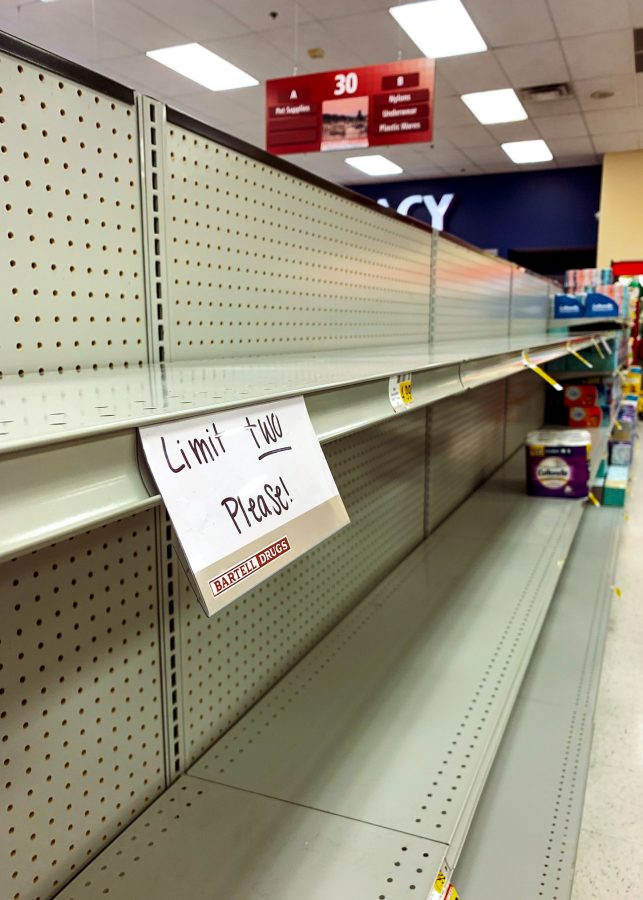When one stands at the edge of the water, looking out across the harbor from the Harbor Walk on campus or from the JFK Museum, they can see an array of colorful shipping containers over in South Boston near Castle Island. These shipping containers contain a variety of goods, from vehicles to holiday gifts. However, since the start of the COVID-19 pandemic, many have lost their jobs, and that has caused a lot of industries to shut down. One industry that has been hit hard, that people are now seeing the effects of, is the shipping industry.
Hundreds of thousands of shipping containers still remain on freight ships, as they are unable to unload their cargo in ports, such as Los Angeles.
As of Monday, Oct. 18, over 200,000 containers remained on the ships stuck in the Port of Los Angeles. Not only are containers unable to come off the ships, but there is also a shortage of truckers to move those containers.
The Bureau of Labor Statistics reported that in comparing September 2021 to September 2019, “22,000 fewer people are working in truck transportation now than there were pre-pandemic.”
NBC reports that “even adding those 22,000 people back into the industry probably wouldn’t cover what is needed overall. Some driver recruiting firms report that there is one qualified truck driver for every nine job listings, according to Forbes.”
In a CNN article, Phillip Sanfield, the Director of Media Relations for the Port of Los Angeles stated, “The Port of LA is ready now. We have plenty of longshore workers. The issue is truckers and more importantly, cargo to be picked up.”
A lack of truckers is only one part of this larger supply chain issue. Since the pandemic caused many people to stay at home and travel less, there was a rise in spending online.
“American consumers who have been spending less on services, such as travel or going to movies or other events, have been spending more money on goods, from household goods to automobiles. And the rise in imported goods and items that are built here with foreign sourced parts have resulted in more container volume trying to get through the ports than before the pandemic,” according to CNN.
The high demand for goods has led to blockages in the production system, such as shortages of electronics and cars.
Electronics and cars are not the only shortages that are being experienced. Other goods like toys that are imported from foreign countries may cause a lot of items for the holiday season to not arrive on time.
BBC reports, “At the moment it is taking about 70 days from ‘when the product leaves the manufacturing site, to when it arrives at the sales point in the U.S.’ That means that even if a popular toy leaves China today, it now won’t make it to the shops in the U.K., mainland Europe or the U.S. in time for Christmas. That’s largely because the ongoing logjam at U.S. ports is having a ripple effect back in Asia.”
According to CNBC, “White House officials told Reuters that Americans could face higher prices and sparser shelves this festive season with the Biden administration trying to alleviate blockages at ports.”





















































